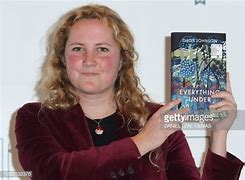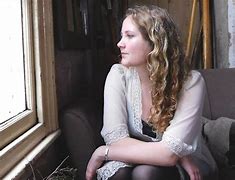Words from a writer: DAISY JOHNSON
Words from a writer: DAISY JOHNSON
by Norman Warwick

Sisters is the title of this new work by Daisy Johnson and reviewed in The Guardian on 12th August 2020 by Erica Wagner.
September and July are the given names for the two sisters of the title, born ten months apart but who, in so many ways, are as near to twins as can be. This ´eerie, absorbing novel´ as the reviewer calls it, starts their story at a point when they are apparently heading North with their mother, driving from Oxford to a dilapidated house ´beached up on the side of the North York moors, only just out of the sea.´
The author has currently laid claim to this ´liminal, watery´ kind of territory in Fen, a previous collection of short stories, The Guardian writer tells us, and adds that only two years later, in 2018 Daisy Johnson then again blended myth and reality, drawing from the Oedipus story to concoct a strange mother daughter bond between characters in her novel Everything Under.
Sheela, the mother of the eponymous Sisters here in this new novel, has pulled the daughters out of school as she takes them with her to flee her husband. Ursa, a sister-in-law who is perhaps disturbed by her brother´s behaviour towards Sheela, offers the three of them a place to stay. The house name of Settle might be evocative of Yorkshire but is Johnson´s work is anything but settling. We learn that the sisters are the daughters of their mother´s first husband, who abandoned the family when the girls were tiny. He was unstable, it seems, and he subsequently tragically died.
Sisters is a book, certainly, that unveils every secret of each family member on item at a time. The tragedy that lies at the heart of the story is only slowly and tantalisingly exposed. As we play peek-a-boo-the-clue about the catalyst of the story we learn that Sheela and her daughters have roots there but it is a while before we realise how entangled are those roots.
Again shielding reality with myth, or is it the other way round, Johnson pulls a twenty first century twist on the sisters ´mythic closeness´.
In a very clever observation of our times we are left slightly disturbed to read that the sister share on mobile phone.
It seems no moment is unshared even if occurring in isolation. When on sister loses her virginity on the beach the other is at home, somehow feeling the excitement, in what is a disturbingly erotic moment.

Although Daisy Johnson has publicly public commented that the work of Stephen King has been influential on her own, the tip of the hat that sees her girls dressing as the sisters from The Shining (A King novel, of course) might be seen as being a step too far. Furthermore, Erica Wagner points out that Johnson´s novel carry´s reminders of Daphne Du Maurier´s Rebecca and that the plot, with all its twist and turns, could as easily be one created by Sarah Waters.
Even in moments of seeming quiet, however, Johnson maintains the tension, which she does by somehow finishing her telling just a few words early so that there is a piece missing. She is cleverly elliptical, and in a scene where the three of the m are re-painting a room in the shelter, they arrive, or perhaps not quite, at the decided colour by a kind of paint-mx alchemy and the reader wonders, as much as do the characters and their creator, why the colours are not quite right.
Even when spoken through either of the two strong narrative voices in this book, we might assume the adjectives like ´almost´, so in abundance, are chosen to keep us all off-kilter. Somehow, perhaps as in life, what we aren´t shown, or don´t see or can´t see is more disturbing than what we can.
Erica Wagner summarises all this perfectly when she says that ´in Sisters, folk-lore terror shoves up against the contemporary and eternal terror of domestic and sexual abuse´.

Daisy Johnson promises a comfort that always just exceeds the grasp.
There is here, I think, something of Angela Carter and Nights At The Circus. There is what Carter might have recognise as ´new wine poured from old bottles´, but even as we tell ourselves that, and take a sip of that wine, doesn´t that wine taste just enough ´off´ to worry us?




Leave a Reply
Want to join the discussion?Feel free to contribute!